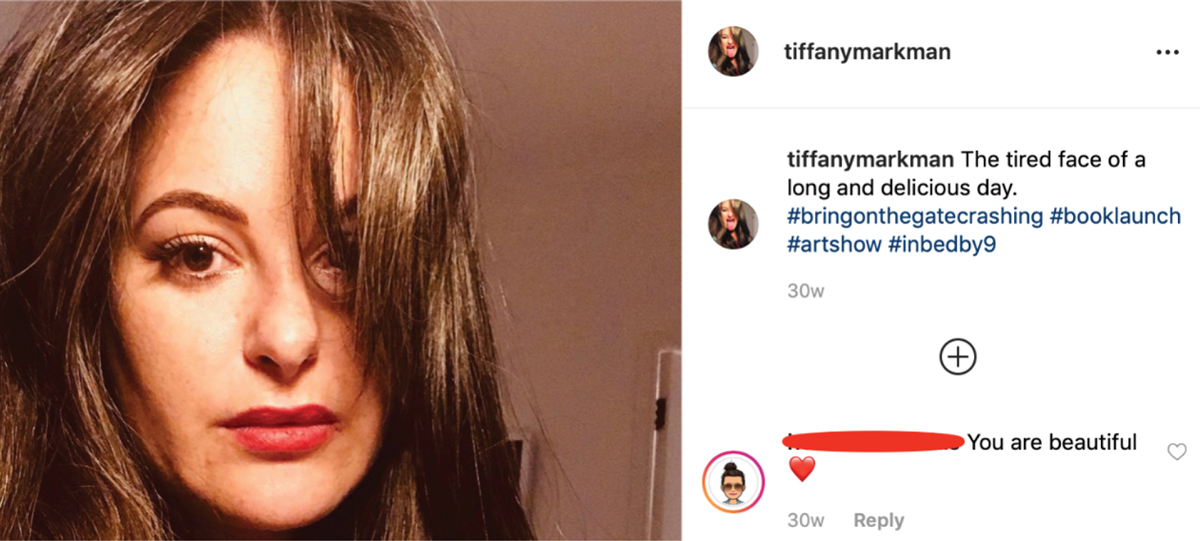“If I do humblebrag so myself…”
The humblebrag: what it is and why so many of us are guilty of it
“I hate that I look so young – Another 18-year-old just made a pass at me.”
“Oh no! Spilled red wine on the contract for my new book.”
“Why am I always the one who works on the most important project?”
Seen one of these before? Gritted your teeth, rolled your eyes and moved on – with a low-level-but-growing sense of irritation? Meet the ‘humblebrag’.
Presented as a self-deprecating or modest statement, or sometimes a pseudo-complaint, the humblebrag’s actual purpose is to draw attention to something someone’s proud of. You may even have done it yourself (I have).

Where’d it all start?
The humblebrag phenomenon isn’t new. In fact, Jane Austen’s Pride and Prejudice, written in 1815, suggests that it’s been around a long time: “Nothing is more deceitful than the appearance of humility. It is often only carelessness of opinion, and sometimes an indirect boast."
You’re likely to have encountered humble-bragging, too, in the job interview space, where a common question is, “What’s your biggest weakness?” This question begs a humblebrag response like, “I’m too much of a perfectionist” or “I find it difficult to take breaks because I’m such a hard worker.”
But we’ve become more aware of humblebragging today because of social media and selfies – both directed towards emphasising our positive qualities and successes, while attempting to make people like us. “It’s hard to be liked and be a showoff at the same time,” acknowledges Whitbourne (2018).
Sociologist Amie Hess (in Kay, 2014) points out that Facebook and Twitter “are modern-day confessionals”, while Alford (2012) explains that “social media has given us many more canvases on which to paint our faux humility — making us, in turn, increasingly sophisticated braggers.”
He adds, “falsely modest statements on [social media] try to fly under decorum’s radar by whispering to readers, “You’re my fan, not my friend.”
Some humblebraggers may have a genuine desire not to be offensive on social media, where words lack supportive or mediating body language to neutralise the effects of a boast. Others, it seems, just want to grandstand.
Celebs do it too, even though they’re already famous. Take a look:
- “Oh dear. Don’t know what to do at the airport. Huge crowd but I’ll miss my plane if I stop and do photos… Oh dear, don’t want to disappoint.” – Stephen Fry, writer & comedian
- “So I have to go to both Emmy Awards!! 2 dresses?!?!” - Cat Deeley, British TV presenter
- “Just won GQ style award in Germany. Obviously they made a mistake. I wonder how long till they come take it back.” - Jared Leto, actor
- “Remind me not to stay out til 2am w/ @kidrock again. Hurtin’ for certain today.” - Lance Armstrong, cyclist
Where’s the name from?
The term “humblebrag”, which now resides in the Oxford Dictionary, was coined by late comedian and writer/producer Harris Wittels (Wittels, 2016).
On the inside flap of his book, Humblebrag, the Art of False Modesty, Wittels penned the consummate humblebrag: “… by Harris Wittels, who would love some free time but has been too busy writing for ‘Parks and Recreation,’ ‘Eastbound & Down,’ and a bunch of other stuff!” (in Freeman, 2017).
In 2017, academic researchers Ovul Sezer, Francesca Gino and Michael Norton investigated humblebragging as a selfpresentation strategy (Whitbourne, 2018), finding that 59% of them are couched in complaints and include topics like wealth, attractiveness, intelligence, and personality.
Humblebrags come in diverse flavours:
- #justtoobusy
“I just started writing an app that I know I could turn into another million Rand company - if I had the time.” - #suchanidiot
“I’ve been working at Forbes magazine on and off for the last two years, and I still push the door the wrong way
EVERY time I leave.” - #impostorsyndrome
“Wow, honoured: For some reason, @FastCompany’s 50 most influential designers in America includes ME.” - #reluctantattention
“A patient grabbed my bicep today and made a comment about my muscles. It was a little awkward.” - #thegildedcage
“My emails send so slowly over here in Cannes! So frustrated!” - #bytheway
“Just bought takeaways for two homeless guys. Can’t do this every day, but it hurts to see these poor people begging for help.”
What’s the flip side?
The flip side of humblebragging is that when we use it to try to ‘minimise’ big news, it often backfires, making others feel negative towards us.
This is because “[t]he opposing nature of a humblebragging post (“I’m so talented! But so modest!”) asks readers to go in two directions at once, reaction-wise,” explains North (in Kay, 2014), which feels uncomfortable.
Sincerity is actually the key ingredient, says Sezer (in Ducharme, 2018), so much so that regular bragging is actually better for self-presentation than humblebragging – because at least it feels genuine and authentic.
Then, there’s the underbrag.
Taking the flip side to an entirely different level is the anti-humblebrag — or, as blogger Jen Doll calls it, the “underbrag” (Alford, 2012): sharing acts of stupidity and ignorance, devoid of possible reward, “to counter the prevailing social media ethos of posting only successes” (Wayne, in Alford, 2012).
Jen Doll (2012) goes further:
“The underbrag is a post-brag-brag, post-humblebrag form of bragging. It’s the third wave, if you will. It is when you announce boisterously your mistakes and foibles, regardless of your fears of being judged, shamed, punished, or fired. It is the willful thumbing of the nose of brags; the I-don’t-care-I’m-going-there-oh-yes-I-did-too announcement. Instead of revealing something widely considered good and envy-producing about the braggart, it reveals something mortifying that you might not want to admit. But you admit it anyway.”
Want an example? “I just got dumped - via Post-It note!”
So what are you to do?
Be aware of, and then avoid, the perfectly constructed humblebrag, which is: some outright boasting, garnished with a hint of self-deprecation, and served with a one-word twist - like ‘ugh’ or ‘weird’ or ‘awkward’ - to make it all okay.
If you feel the need to brag, just do it.
Be sincere, be honest, and be proud. But try to make boasting only a fraction of what you share online. That way, when something truly great does happen, you won’t feel compelled to underplay it. Alternatively, you could arrange for a colleague, friend or family member to publicly brag about your accomplishments for you. Moms love doing that stuff. (And mine would…if only she knew how to use social media.)

